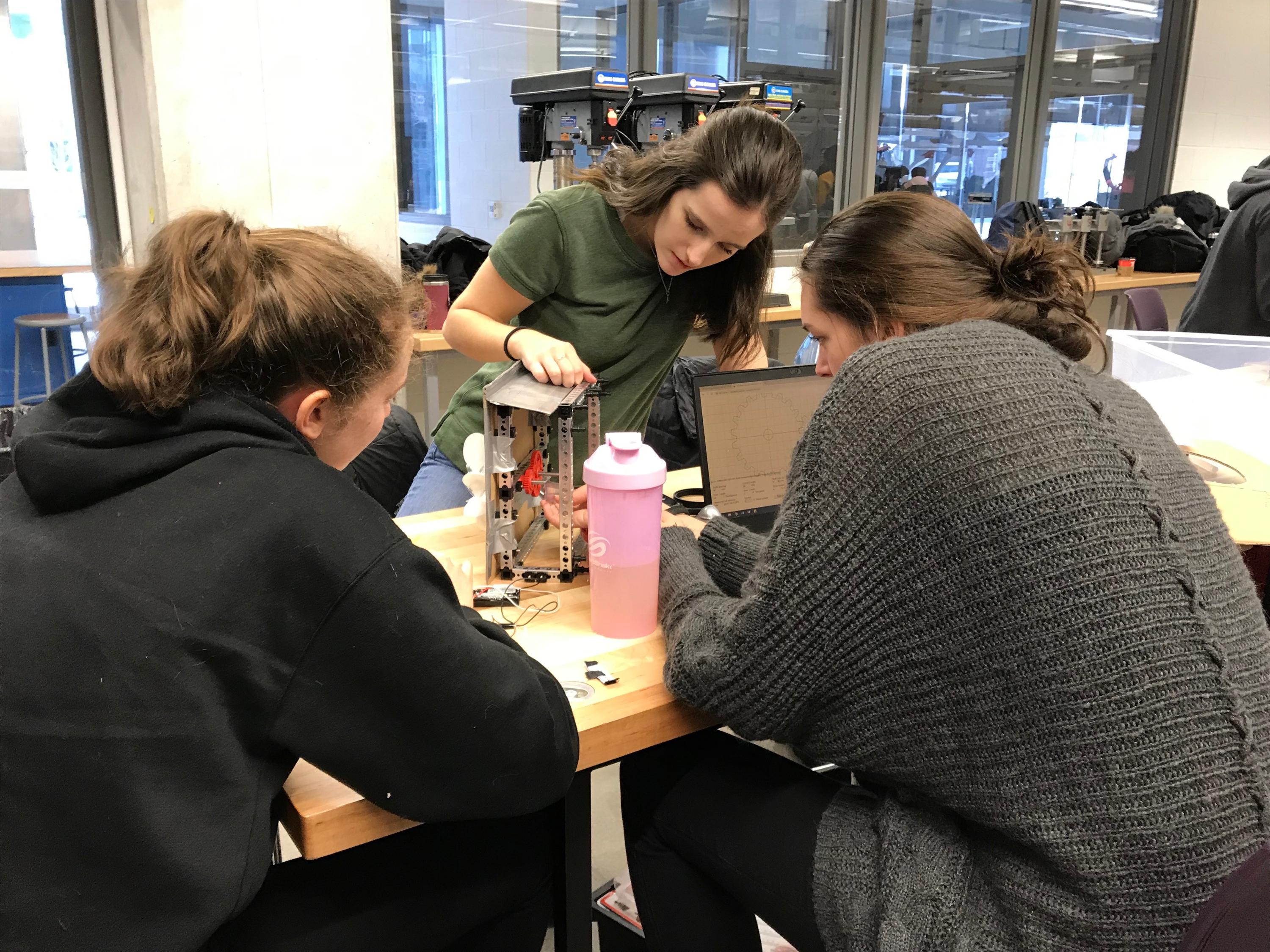
Grant recipients:
Ada Hurst, Management Science; Chris Rennick, Engineering Ideas Clinic; Carol Hulls, Mechanical and Mechatronics Engineering; Sanjeev Bedi, Engineering Ideas Clinic; Samar Mohamed, Centre for Teaching Excellence
(Project timeline: January 2019-December 2020)
Project Team:
Ada Hurst, Management Science; Chris Rennick, Engineering Ideas Clinic; Carol Hulls, Mechanical and Mechatronics Engineering; Sanjeev Bedi, Engineering Ideas Clinic; Samar Mohamed, Centre for Teaching Excellence; Mehrnaz Mostafapour, Public Health and Health Systems
Description
Accreditation requirements dictate that, by graduation, Engineering students must have developed problem solving skills. Traditionally, engineering students didn’t get exposed to higher forms of problem solving – design – until upper year courses. Since 2014, the Engineering Ideas Clinic has delivered authentic design activities (the most intensive of which are called Design Days) to thousands of students in all years, with an initial focus on first year.
So far, assessment of whether Design Days are effectively contributing to improving student problem solving skills has been conducted in an ad-hoc manner. Through this proposal, we seek to develop a systematic measurement protocol that operationalizes Jonassen’s (2000) framework to assess the activities, student characteristics, and their problem-solving processes and outcomes (i.e., solution quality). The instruments will be used to evaluate Design Days and other problem solving activities, understand how they are impacting students, and drive future activity development to improve student experiences and outcomes.